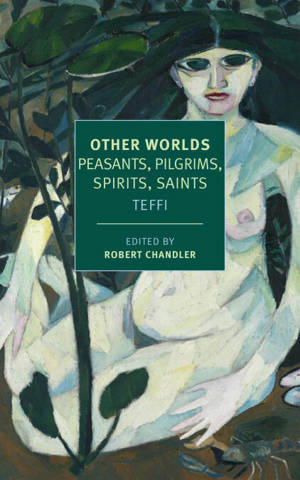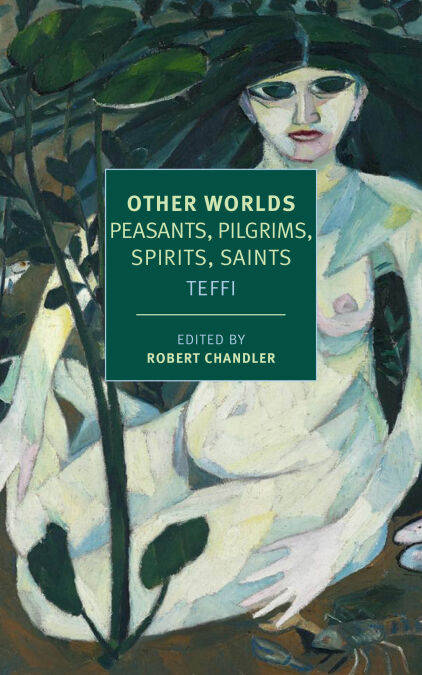
- Afhalen na 1 uur in een winkel met voorraad
- Gratis thuislevering in België vanaf € 30
- Ruim aanbod met 7 miljoen producten
- Afhalen na 1 uur in een winkel met voorraad
- Gratis thuislevering in België vanaf € 30
- Ruim aanbod met 7 miljoen producten
Zoeken
€ 17,69
+ 17 punten
Uitvoering
Omschrijving
Stories about the occult, folk religions, superstition, and spiritual customs in Russia by one of the most essential twentieth-century writers of short fiction and essays.
Though best known for her comic and satirical sketches of pre-Revolutionary Russia, Teffi was a writer of great range and human sympathy. The stories on otherworldly themes in this collection are some of her finest and most profound, displaying the acute psychological sensitivity beneath her characteristic wit and surface brilliance.
Other Worlds presents stories from across the whole of Teffi’s long career, from her early days as a literary celebrity in Moscow to her post-Revolutionary years as an émigré in Paris. In the early story “A Quiet Backwater,” a laundress gives a long disquisition on the name days of the flora and fauna and on the Feast of the Holy Ghost, a day on which “no one dairnst disturb the earth.” The story “Wild Evening” is about the fear of the unknown; “The Kind That Walk,” a penetrating study of antisemitism and of xenophobia; and “Baba Yaga,” about the archetypal Russian witch and her longing for wildness and freedom. Teffi traces the persistent influence of the ancient Slavic gods in superstitions and customs, and the deep connection of the supernatural to everyday life in the provinces. In “Volya,” the autobiographical final story, the power and pain of Baba Yaga is Teffi’s own.
Though best known for her comic and satirical sketches of pre-Revolutionary Russia, Teffi was a writer of great range and human sympathy. The stories on otherworldly themes in this collection are some of her finest and most profound, displaying the acute psychological sensitivity beneath her characteristic wit and surface brilliance.
Other Worlds presents stories from across the whole of Teffi’s long career, from her early days as a literary celebrity in Moscow to her post-Revolutionary years as an émigré in Paris. In the early story “A Quiet Backwater,” a laundress gives a long disquisition on the name days of the flora and fauna and on the Feast of the Holy Ghost, a day on which “no one dairnst disturb the earth.” The story “Wild Evening” is about the fear of the unknown; “The Kind That Walk,” a penetrating study of antisemitism and of xenophobia; and “Baba Yaga,” about the archetypal Russian witch and her longing for wildness and freedom. Teffi traces the persistent influence of the ancient Slavic gods in superstitions and customs, and the deep connection of the supernatural to everyday life in the provinces. In “Volya,” the autobiographical final story, the power and pain of Baba Yaga is Teffi’s own.
Specificaties
Betrokkenen
- Auteur(s):
- Vertaler(s):
- Uitgeverij:
Inhoud
- Aantal bladzijden:
- 304
- Taal:
- Engels
Eigenschappen
- Productcode (EAN):
- 9781681375403
- Verschijningsdatum:
- 19/04/2021
- Uitvoering:
- E-book
- Beveiligd met:
- Adobe DRM
- Formaat:
- ePub

Alleen bij Standaard Boekhandel
+ 17 punten op je klantenkaart van Standaard Boekhandel
Beoordelingen
We publiceren alleen reviews die voldoen aan de voorwaarden voor reviews. Bekijk onze voorwaarden voor reviews.








